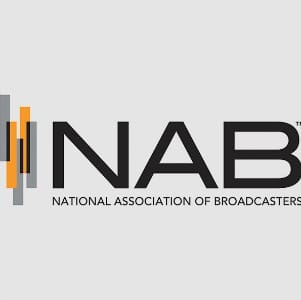
In a 90-page rebuttal to comments submitted to the FCC opposing relaxing the current ownership rules, the NAB defines them as “backward,” by actually starting their comments with the dictionary definition. “Backward” (adverb) – in the reverse of the usual or right way.”
The NAB argues that comments suggesting relaxing the ownership rules by focusing on new audio competitors fighting for ad dollars and audience, would be failing to act in the public interest, are completely wrong. “To the contrary, that should be the precise focus of the FCC’s review of its radio caps, and commenters such as these have it exactly backward. If broadcast stations cannot successfully compete against other audio and video delivery platforms for audiences and, thus, advertising dollars, they will not earn revenues needed to cover their substantial fixed costs and will be unable to serve listeners and viewers effectively, let alone improve their programming and technical facilities.”
The NAB has been arguing that radio stations are now battling with the unregulated digital world of Facebook, Google, Pandora, and others, for both ad dollars and audience. Those that oppose – which include iHeartMedia, Radio One, Salem, and The National Association of Black Owned Broadcasters – will squash diversity and put the final dagger in AM Radio.
iHeart urged The Commission to reject the NAB plan, because they believe it would exacerbate the competitive disparity between AM and FM stations. “Doing so will avert the very real threat of a mass divestiture of AM stations in favor of FM station purchases and the consequent devaluation of AM assets and attendant listener flight from the AM band.”
The NAB disputes that argument as well. “While several commenters contend that loosening or removing the FM subcaps will devalue AM stations, no aspects of NAB’s proposal would require, or even directly encourage, radio broadcasters to sell their AM stations, particularly given that AM ownership would no longer ‘count’ against any overall market cap. It also would be inappropriate for the FCC to maintain competitively unnecessary ownership subcaps to essentially coerce broadcasters into acquiring or retaining one type of radio outlet over another. The appropriate focus here is the ability of the radio station industry overall to compete successfully and serve consumers effectively.”
The NAB goes on to say that hyperbolic claims that broadcast deregulation will eliminate all diversity and all local news, or generalized complaints about media consolidation, provide no basis for retaining analog-era ownership rules. “The FCC should discount the unsupported opinion and rhetoric submitted by parties wedded to a backward-looking approach to regulating radio and TV stations, and adopt rules reflecting competitive conditions in the 21st century.”
In terms of where this is headed, the speculation is that the FCC will not do anything until the 3rd Circuit issues its decision in the 2014 Quadrennial Review. We understand the status of that case is that it was delayed due to the government shut down and wasn’t completed until April. The court has not yet scheduled oral arguments so that decision looks to be many months away.
Read the NAB comments HERE.







The NAB has about as much integrity, ethics and scruples as the POTUS…or POS abbreviated.
Time to up-end this farce. Let’s talk instead about restoring Radio’s relevant, glory days: 29 facility licenses maximum per owner, competitors for the ratings prize, when radio actually included talent and listener and thousands had owner investment. Broadcast mandating “public interest, convenience and necessity” standards as bedrock; facilities as part of community instead of an oligarch megaphone of platitudes dishing out fake concern and lyrical trash wrapped around dischord. Those days must come back or the entire medium, the FCC and present-day Congress will find themselves as locked out as we were before new media flourished. Tyrants will fall, and the transgressors at YouTube, Facebook, Twitter are bleeding resource and respect for doing the same thing terrestrial media propagated. Additional infringement of new and community media by rules Big broadcast refuses to follow is the hottest of complaints and grievances. We have not forgotten or forgiven the tyrannical ABC/PBS led shutdown of local non-com experienced broadcasters locked out of low power frequencies. Thanks to this fiasco we have a near collapse of the local radio voice again, with a few stations independent and the remaining frequencies owned by big radio (aka ‘translators’). And the audiences choose with the name of their favorite source on their fingers and lips; dial tuners? That depends on the emperors coming to terms with the ire of naked protectionism.
More consolidation is a zero sum game. The gross revenue of all stations would not increase by more consolidation, even if one company owned every AM and FM station in America.
This is exactly what I was talking about on my last post.
“The real question is What can we do as a collective effort to promote localization? To me it’s difficult to pin point what we can do if the FCC continues in the path that it’s in. Just like at home, it all starts at the top.”
This is why we need to take money out of politics.
From here:
Would it be unreasonable to expect that those who have their hands on the (already bought and paid for) levers of power will, indeed, pull them?